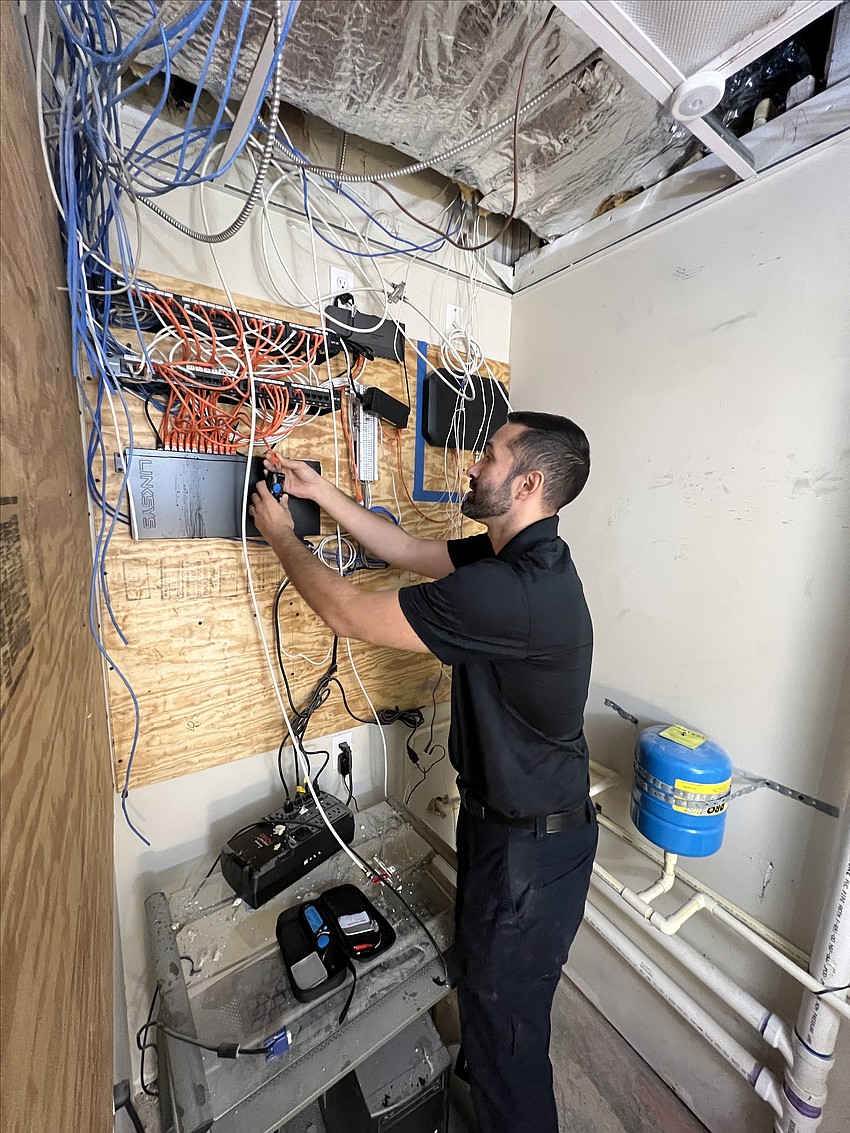
Small companies may see having their own IT department as a luxury that’s hard to afford.
Ismael “Izzy” Amado, 38, founded IT Ninjas in 2018 in Concord, California, to service small companies and not-for-profits.
Prices start at $500 to $1,000 per month depending on the package of services purchased.
The company provides IT support, cybersecurity and backup and recovery services.
The company moved east during COVID-19 for a couple of reasons.
The California business climate was cluttered with state regulations and the state’s home-schooling wasn’t working for his kindergarten-age daughter.
“She failed to do her homework on the first day and when I asked her why, she said it was on Zoom. That wasn’t real school, OK, this is not a learning method that is going to work for this particular child,” Amado said.
When the family moved to Northeast Florida in 2020, they were able to enroll her for in-person classes.
Amado worked for Silicon Valley tech services companies for 20 years.
He worked for companies that had contracts with Facebook, Genentech and Gilead Sciences among other sizable California-based companies.
After about 15 years, he said he tired of working with huge corporations and began planning how to provide IT to smaller clients.
“Along the way I just got kind of sick of that kind of corporate enterprise space,” he said.
He is a one-man sales and tech team. Customers can call or text Global Mentoring Solutions, a company based in British Columbia, Canada, to resolve about 90% of the problems. Amado handles the most difficult situations on-site.
Amado said he is seeing an uptick in customers who would rather use text messages than call in for support questions.
The biggest service he can provide is cybersecurity, focusing on making attack prevention part of a company’s culture.
“I feel cybersecurity is in the periphery a little bit. It’s on the edge of their minds. They are worried about it but don’t quite know how to approach it,” he said.
IT Ninjas concentrates on password managers and training employees how to spot phishing emails and other scams. He advises against having social media apps on company equipment and, if installed, having written protocols about its use.
The Amados chose Jacksonville because his wife, Donna, has family here and most of her college credits transferred to Florida State College at Jacksonville where she is studying to become a dental hygienist.
Remote work isn’t a guaranteed business plan. After leaving California in 2020, Amado lost 93% of his clients in that state.
However, he made $100,000 last year and is looking at $150,000 this year.
He joined the JAX Chamber and made a point of becoming involved.
He serves on two committees and attends two or three chamber events a month.
He credits chamber activity for meeting people and building his business.

A regular habit is to meet larger competitors for lunch.
If he knows of a job that is too big for him, he passes it along, and just as often he is then told about a small job that is right for IT Ninjas.
He said the business culture is vastly different on the two coasts.
In California, it is easy to enlist clients. Retention is the problem.
Not so much here.
“So at the end of the contract out there, you’ll get a Zoom call telling you they found something cheaper,” Amado said.
“Here, I feel you really have to do something to make somebody not want to do business with you. It is very relationship-based here,.”
IT Ninjas works with not-for-profits that have small budgets but need IT support.
He also volunteers time at a local high school.
Students want to talk to him about game development and coding.
His advice is for them to also take a creative writing course and attend a Toastmasters meeting.
It’s about being able to interact with potential customers.